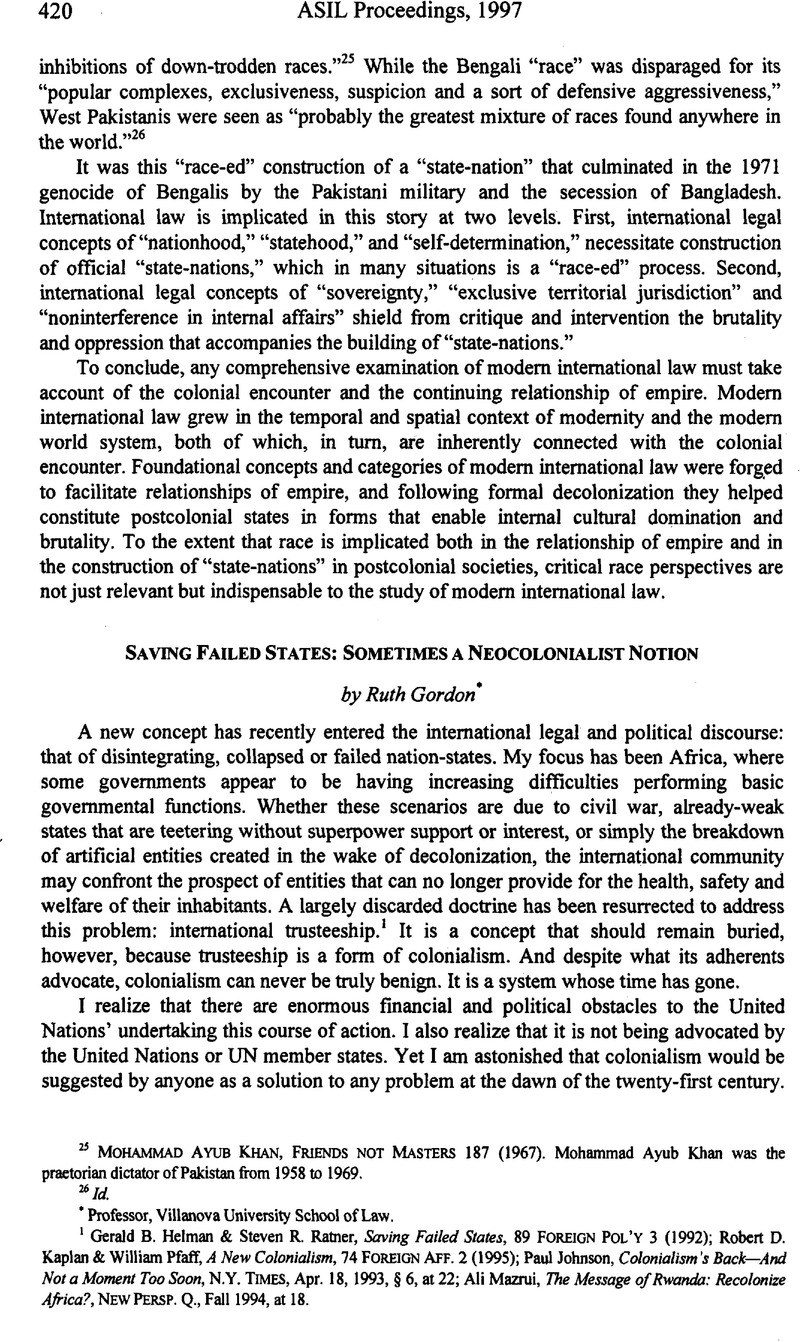Published online by Cambridge University Press: 28 February 2017

1 Helman, Gerald B. & Ratner, Steven R., Saving Failed States, 89 Foreign Poly 3 (1992)CrossRefGoogle Scholar; Kaplan, Robert D. & Pfaff, William, A New Colonialism, 74 Foreign Aff. 2 (1995)Google Scholar; Johnson, Paul, Colonialism ‘s Back—And Not a Moment Too Soon, N.Y. Times, Apr. 18, 1993, § 6, at 22Google Scholar; Mazmi, Ali, The Message of Rwanda: Recolonize Africa?, New Persp. Q., Fall 1994, at 18 Google Scholar.
2 See, e.g., M.F. Lindley, The Acquisition and Government of Backward Territory in International Law vi (1926); John Westlake, Chapters on the Principles of International Law (1894); Hall, William E., International Law 100 (Atlay, J.B. ed., 5th ed. 1904)Google Scholar; 1 L. Oppenheim, International Law: A Treatise 276 (1905); H. Duncan Hall, Mandates, Dependencies and Trusteeship Systems 277 (1955); see also Anghie, Antony, “The Heart of My Home”: Colonialism, Environmental Damage, and the Nauru Case, 34 Harv. Int’l L. J. 445, 499-504 (1993).Google Scholar
3 Helman & Ratner, supra note 1.